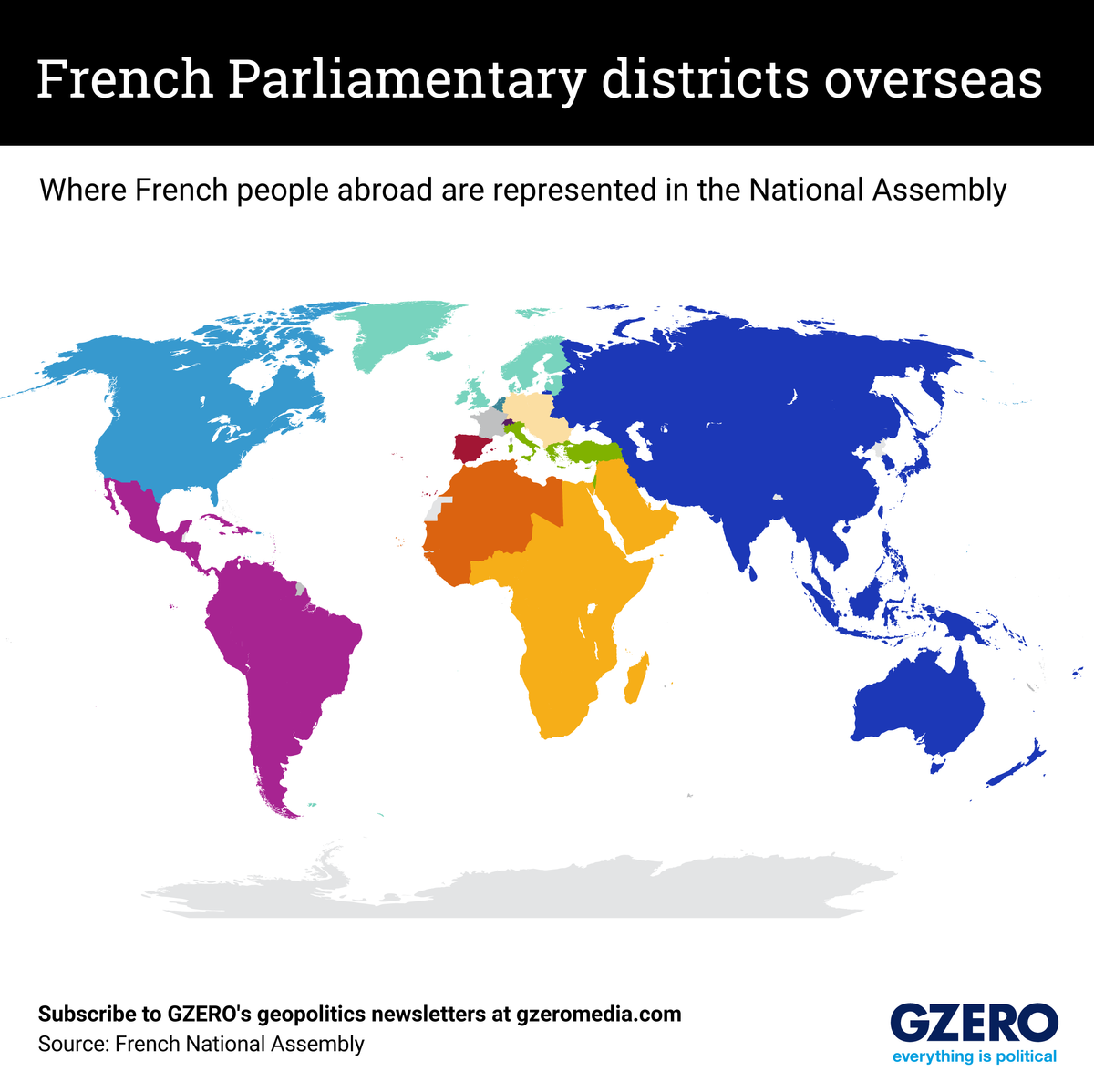For citizens of most democracies, moving overseas usually means losing some political representation back home. For example, Americans abroad can still vote in their home states – but it’s not as though any senators or representatives feel particularly beholden to the expat constituency.
Not so for the 2.5 million French citizens living overseas: Article 24 of the French Constitution specifically mandates they be represented in the legislature. So the French National Assembly divides the world – save North Korea, the disputed territory of Western Sahara, and, somewhat inexplicably, Bhutan – into 11 constituencies that each send one fully empowered legislator back to Paris.
French expats are also represented in the Senate, albeit indirectly. Voters elect 442 “advisers to French citizens abroad” to serve six-year terms as a kind of community liaison between ordinary expats and the local French Embassy or consulate (you might recall one of these folks was recently kidnapped in Niger). Of that body, 90 are elected to sit on the Assembly of French Citizens Abroad, a long-standing committee that meets four times a year to advise the French government on foreign affairs. They then meet with 68 separately elected “consular delegates” to choose 12 senators with full lawmaking powers.
Complicated, sans doute, but it means that French citizens overseas have hundreds of elected representatives working on their behalf, whereas most other expats don’t have much of a voice back home. The graphic above illustrates where France draws the lines of its overseas legislative districts.
_____
GZERO's Ian Bremmer recently sat down with Eléonor Caroit, who represents French citizens in Latin America through one of the 11 National Assembly seats noted above, at the 2023 Paris Peace Forum. They discussed protecting democracy from some dangerous applications of artificial intelligence alongside Rappler CEO Maria Ressa and Microsoft Vice Chair and President Brad Smith. Check it out here.






